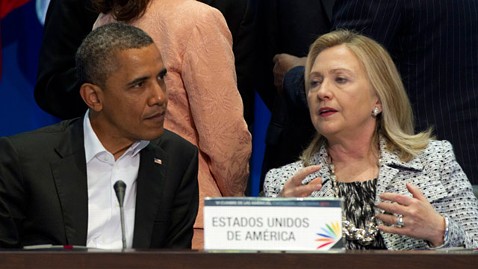The most talked about name in the opening weeks of the fiscal cliff negotiations isn't Barack Obama, House Speaker John Boehner or Senate Majority Leader Harry Reid. It's Grover Norquist.
Norquist is not a publicly elected official or even a government appointee. The 56-year-old conservative leader is the founder and president of Americans for Tax Reform and promoter of the Taxpayer Protection Pledge -- better known as the Norquist Pledge.
Americans for Tax Reform opposes tax increases, and the Norquist Pledge calls on members of Congress to do just that. Taken at face value, this pledge poses a big roadblock to any compromise with Democrats in the ongoing fiscal cliff negotiations, even though several prominent Republican leaders have recently signaled an openness to put everything on the table in negotiations, which would seem to violate the pledge.
If the goal at the end of these negotiations is compromise, could there be political risk in Republicans' violating a pledge formulated by a person most Americans have probably never heard of? Actually, yes.
Violating the pledge all but ensures a primary challenge in two years from the Republican right.
"A defection on taxes almost guarantees it -- the End, " said ABC political director Amy Walter.
"It's all about the GOP base," said Larry Sabato, director of the Center for Politics at the University of Virginia. "Most of the Republican House members and a large number of the party's senators are very safe in a general election. No Democrat can beat them. The only place they can lose is in the low-turnout party primary, which is usually dominated by strong conservatives for whom the word 'tax' is almost an obscenity."
Political Gamble: Some Republicans Willing to Raise Taxes Watch Video
Sen. Lindsey Graham and Sen. Dick Durbin on 'This Week' Watch Video
It's these voters who make up the GOP base who will likely be the most involved in primary contests -- on the ground, in fundraising and, of course, at the voting booths.
"These activist voters listen to Norquist and his organization, and they have the money to get the message out to voters in TV ads and mailings," Sabato said. "A Republican member tagged with supported tax increases is awarded the political kiss of death."
Two prominent GOP senators up for re-election in deep-red states in 2014 have already expressed a willingness to buck the Norquist Pledge: Saxby Chambliss of Georgia and Lindsey Graham of South Carolina.
"I agree with Grover -- we shouldn't raise rates -- but I think Grover is wrong when it comes to we can't cap deductions and buy down debt," Graham said on ABC's "This Week With George Stephanopoulos."
"I care more about my country than I do about a 20-year-old pledge," Chambliss said in an interview with WMAZ-TV in Macon, Ga. "If we do it his way, then we'll continue in debt, and I just have a disagreement with him about that."
Sabato said that these two candidates couldn't help but be worried about potential backlashes stemming from what they'd said about the no-tax pledge.
"The GOP primary electorate is very conservative in the South, so I would think Saxby Chambliss and Lindsey Graham would have to be somewhat concerned, even though they both start out as clear favorites," Sabato said.
Whether a primary challenger can mount a strong enough campaign to take down these high-ranking senators raises a different question. The success of senior GOP senators such at Orrin Hatch of Utah in fending off intra-party primary challenges likely gives a boost of confidence to Graham and Chambliss, along with others, as they head into the final month of negotiations.
However, the primary losses of longtime incumbent senators such as Bob Bennett of Utah in 2010 and Richard Lugar of Indiana in 2012 will likely stay somewhere in the minds of these Republican incumbents, complicating the negotiations and raising the political stakes both now and further down the road in 2014.










